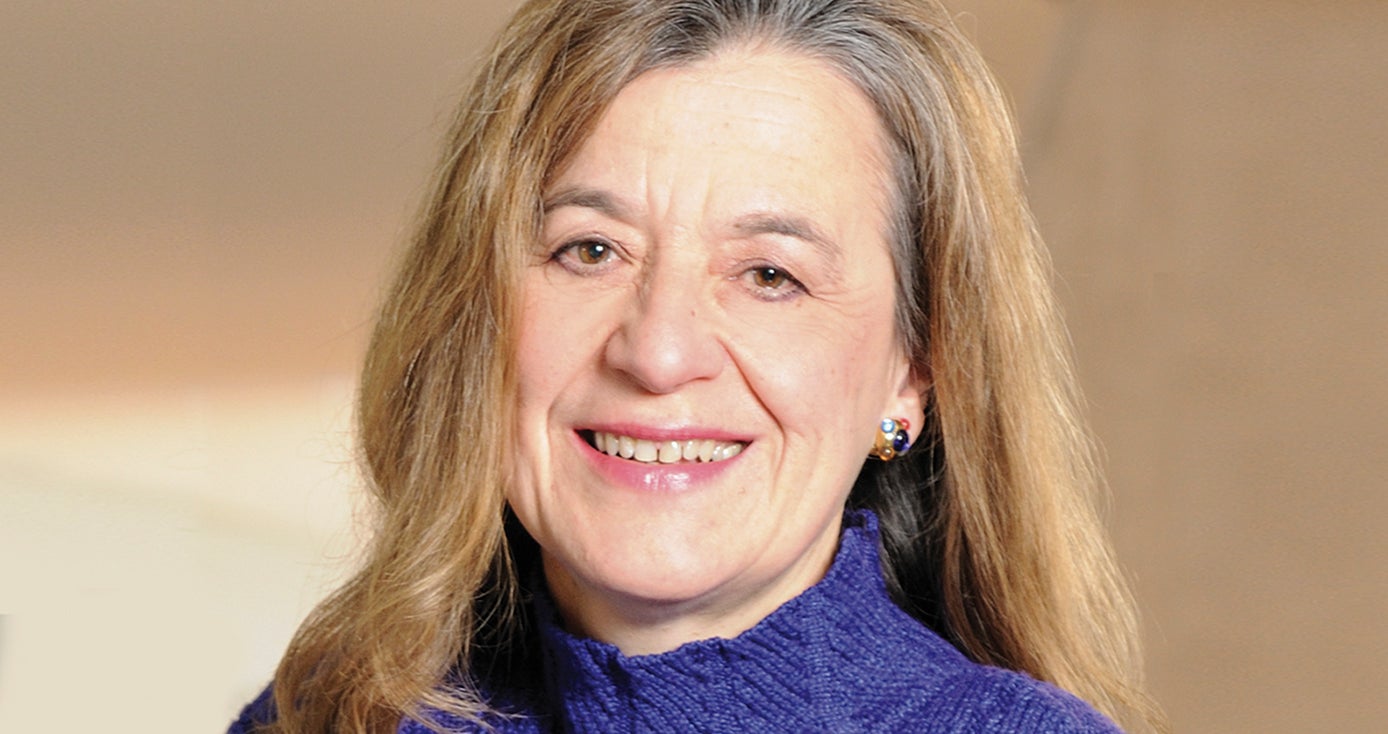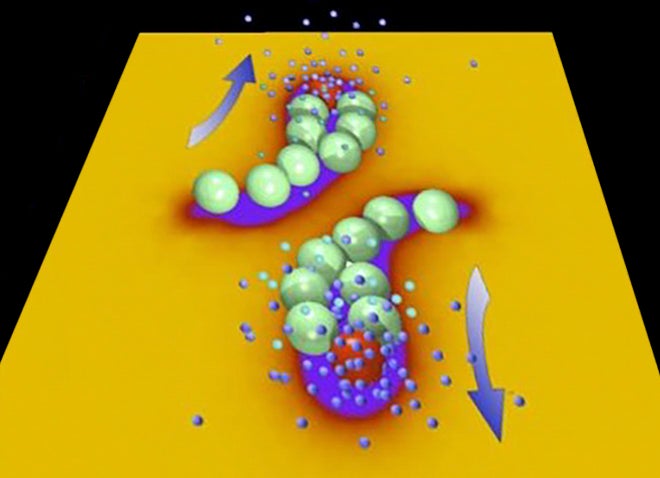
Subscribe to Pittwire Today
Get the most interesting and important stories from the University of Pittsburgh.Longtime Pitt Mentor, Engineer Works on the Future With Soft Robotics
In Anna Balazs’ office at the University of Pittsburgh are items that signal her fondness for nostalgia: A vintage Albert Einstein action figure, a small collection of Beanie Babies and a CD rack full of blues and jazz albums.
“The music was therapeutic before my stereo broke,” said Balazs, who has been at the Swanson School of Engineering since 1987 and is now a Distinguished Professor in chemical and petroleum engineering. “Maybe I should have asked for a new one for Christmas.”
However, at her Schenley Place computer lab, Balazs is working to transform the future through her research of soft robotics, which could have revolutionary applications across a variety of fields — from surgery in hospitals to rehabilitating patients to providing safer industrial manufacturing conditions.
Soft robotics is a subfield where robots are made of materials similar to those found in living organisms. Balazs’ goal is to create materials that can make “soft” robots autonomous and adapt to different environmental conditions.
“It’s like, what if the Roomba could just clean by itself without any outside instructions?” Balazs said.
Balazs’ career, however, didn’t start with this field. Her interest in the sciences began when she was a child. Her family fled their native Budapest, Hungary, in 1956 when she was 3 years old during the Soviet invasion. After briefly living in Montreal and Ottawa, Canada, the family made its home in Rockland County outside New York City.
While in grade school, one writing instrument caught her attention in an almost mesmerizing fashion, she said.
“I was fascinated with mechanical pencils,” she said. “It was interesting to me when I was young because I could take them apart and see how they worked and then put them back together and write again. What could be cooler than that?”
From there, she took an interest in mathematics and physics, the latter of which she primarily studied at Bryn Mawr College near Philadelphia, Pennsylvania, for her bachelor’s degree. Afterward, she attended the Massachusetts Institute of Technology, studying material sciences, and then did post-doctoral work in chemistry at Brandeis University and later, polymer science at the University of Massachusetts.
“I wanted to be able to design something that had a function,” Balazs said. “That’s where the transition between physics and engineering happened, at the end of college.”
Making her way to Pitt
Balazs finally made her way into Pittsburgh in 1987 after her husband, Steven Levitan, was interviewed for an electrical and computer engineering faculty position in the Swanson School. Concurrently, Balazs was in consideration for a position at a global manufacturer.
“He (Levitan) mentioned during the interview that I was interviewing at a company, and the recruiters said ‘Is she here? Bring her in,’” she said. “Pitt was brilliant and proactive in the fact that we were two academics looking for academic positions.”
From there, Balazs rose through the ranks as assistant professor, then associate professor, Bicentennial Engineering Alumni Faculty Fellow and currently, the John A. Swanson Chair at the school.
Representing Pitt, she has given presentations and lectures around the world, including Australia, the Netherlands, Germany and the United Kingdom. In May, she will attend a conference in Beijing, China, and in July, will travel to Chile to talk about how external stimuli such as light, heat or local chemical variations could drive soft materials like gels to mimic behavior seen in biology.
“She’s very passionate and excited about her work,” said Olga Kuksenok, a former chemical engineering researcher at Pitt from 2000 to 2015 who started as a post-doctoral researcher under Balazs, and then later ascended to research faculty. Kuksenok is now an associate professor for materials science and engineering at Clemson University.
“She was also very cordial to her research group and would prepare us well for scientific conferences to make sure we took maximum advantage of them,” Kuksenok said. “I still meet up with her at conferences we both happen to go to.”
Another former mentee, Darrell Irvine (ENGR ’95), said he knew he wanted to work in academia after collaborating with Balazs. Irvine now teaches materials science, engineering and biological engineering as a full professor at the Massachusetts Institute of Technology.
“She really showed how exciting being a professor can be and what an academic life was about,” said Irvine, who worked in Balazs’ lab as an undergraduate student, studying polymer system simulations after taking her honors computer science course as a freshman.
“She was very inspiring, so I approached her about joining her lab as an undergraduate research assistant and worked under her guidance for the rest of my time at Pitt,” he said.
Balazs considers the students and researchers she has mentored who have gone on to meet their career goals to be her greatest accomplishment.
“I’m still in touch with most of them,” she said.
Balazs said some of her fondest Pitt memories are when she collaborated with her late husband Levitan on her research. This included a study published in 2010 where the two, along with former Pitt chemical engineering postdoc researcher German Kolmakov and research faculty member Victor Yashin, created a computer simulation model involving self-organizing synthetic capsules. Like ants in a colony, when one “leading” capsule moves, the others follow, exhibiting complex, cooperative behavior. This research provides a platform for assemblies of “artificial cells” that could allow for soft robots to adjust to different working conditions.
“The capsules sort of leave a breadcrumb trail for each other; one leads, the others follow. We feel the research we have done is helping move soft robotics along,” Balazs added.
“We’re learning a lot, but we’re still a long way though from implementing these in industries or the marketplace,” Balazs said. “I’m fascinated by blurring the lines between the living and nonliving, mimicking as much as possible the behaviors you see in biology in synthetic materials.”



